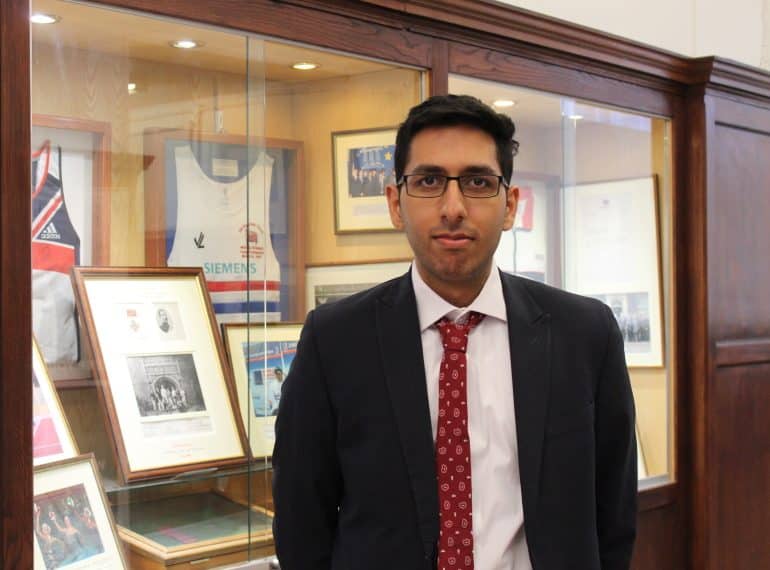
Sixth-former Arnav Sharma is among an élite handful of young scientists selected to compete for a place in the UK national team after his success in the British Biology Olympiad.
Arnav, who was one of eight QE A-level students to win gold medals in last month’s British Biology Olympiad (BBO), will soon be taking part in a virtual selection process to decide who will represent the country in this year’s 32nd International Biology Olympiad (IBO).
Congratulating him, Biology teacher Andrew Collins said: “Arnav’s success stems from his curiosity to delve into topics of Biology to unravel the precise mechanisms behind concepts. He is motivated by interests which range across a number of topics from the Kreb’s cycle* to the behaviour of ants in a colony, for example. He carries out experiments with care and is able to use his background knowledge to interpret data effectively.”
The national team selection process that he is taking part in is being hosted online by Warwick University’s School of Life Sciences and involves practical and theoretical training and assessments.
Dr Collins added that Arnav’s prowess as a biologist also benefits his classmates: “His enthusiasm sparks lively discussions in lessons and helps stimulate others to read beyond what is covered in the course and make unexpected connections between ideas.”
If he is successful in the national team selection, Arnav will join some of the top pre-university Biology students in the world, undertaking both theory and practical tests alongside young people from more than 60 countries.
 Along with Arnav and his fellow gold-medal winners, a further nine boys received silver medals and three took bronze. Thus, 20 of QE’s 21 entrants won medals, while nationally only 25% of the 8,476 competitors were medal-winners. All the QE contestants were from Year 13 and volunteered to take part, competing online from home. They completed two multiple-choice sessions of 45 minutes each.
Along with Arnav and his fellow gold-medal winners, a further nine boys received silver medals and three took bronze. Thus, 20 of QE’s 21 entrants won medals, while nationally only 25% of the 8,476 competitors were medal-winners. All the QE contestants were from Year 13 and volunteered to take part, competing online from home. They completed two multiple-choice sessions of 45 minutes each.
Biology teacher Mev Armon, who supervised boys on Zoom, said: “We value the BBO because it gives our students the opportunity to go further than their A-level syllabus, offering them a new level of challenge.”
* The Kreb’s cycle, also known as the tricarboxylic acid (TCA) or citric acid cycle, is the main source of energy for cells and an important part of aerobic respiration.
